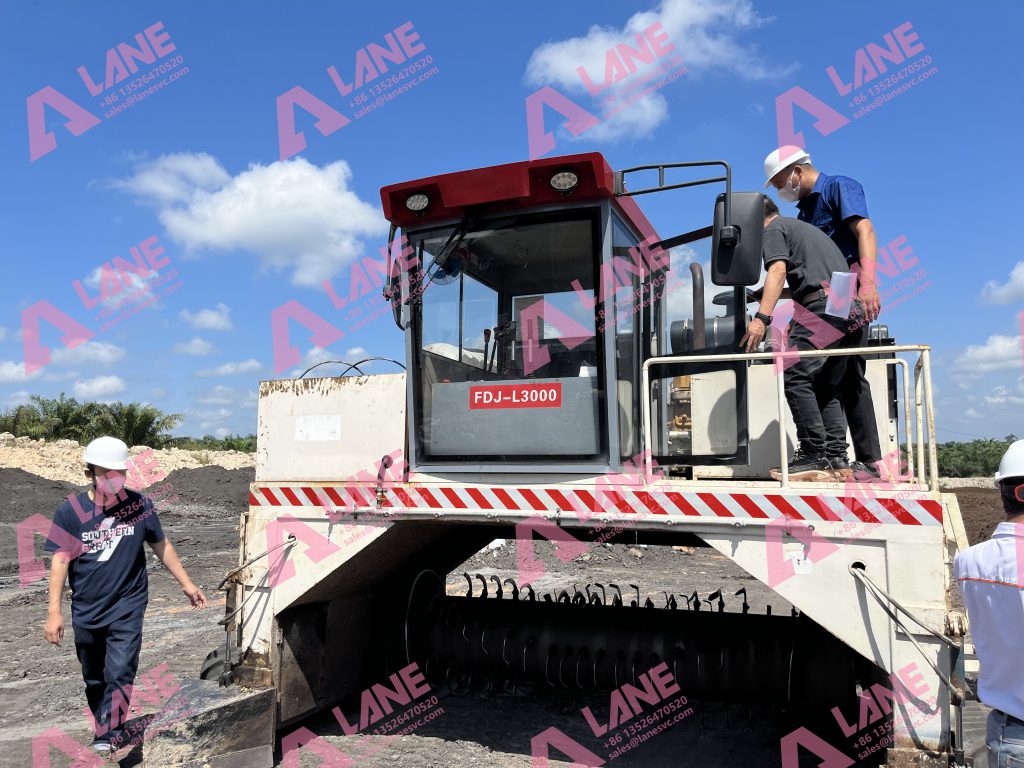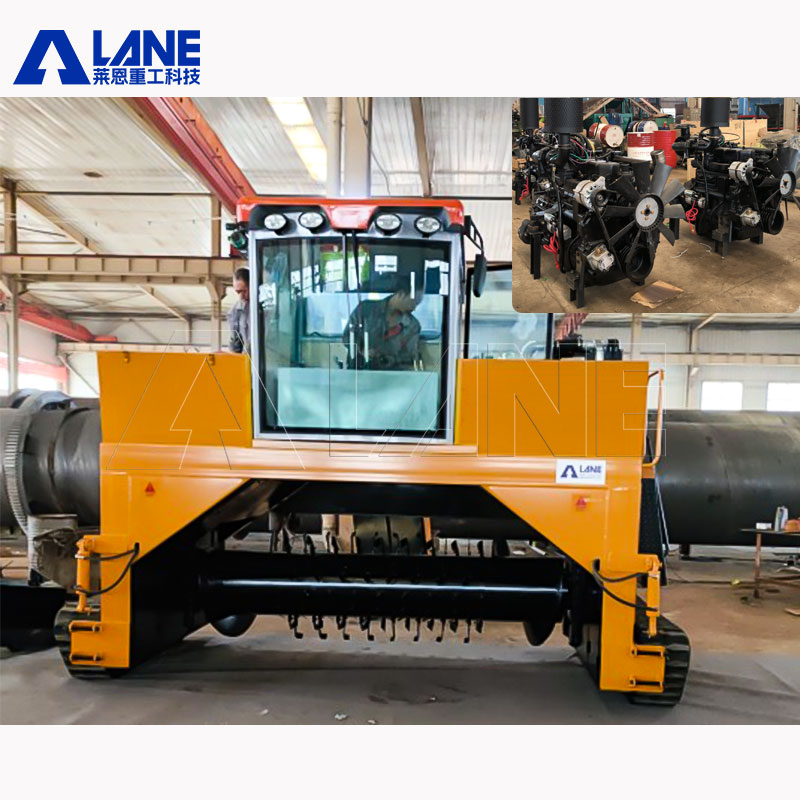The composting of organic fertilizers is a process of converting organic waste into stable, harmless, and nutrient rich fertilizers through microbial action. This process not only requires precise control of conditions to accelerate material decomposition, but also ensures that the produced fertilizer has high quality. Ventilation is a crucial aspect in many management operations, as it directly affects the smooth progress of the composting process and the quality of the resulting fertilizer.

From a biological perspective, ventilation is crucial for maintaining the activity of microbial communities in compost. The composting process mainly relies on aerobic microorganisms to decompose organic matter, and these microorganisms require sufficient oxygen for metabolic activities. Through effective ventilation, essential oxygen can be provided to these microorganisms, promoting their growth and reproduction, and accelerating the process of organic matter decomposition and transformation. If there is insufficient oxygen supply in the heap, the activity of aerobic microorganisms will be inhibited, thereby slowing down the composting process and even leading to the production of anaerobic conditions, causing odor and the growth of pathogens.

Ventilation also plays a crucial role in regulating the temperature during the composting process. Microorganisms in compost generate a large amount of heat when decomposing organic matter, leading to an increase in the temperature of the compost pile. Appropriate temperature can accelerate the growth of microorganisms and the decomposition of organic matter, but excessively high temperature may kill some beneficial microorganisms and reduce the decomposition rate. By proper ventilation, the heat of the compost pile can be effectively dispersed, the temperature of the pile can be controlled within an appropriate range, and microbial activity can be maintained to ensure efficient composting process.
Ventilation also helps regulate the moisture content inside the reactor. Reasonable moisture content during the composting process is the foundation for ensuring the normal growth of microorganisms. Excessive or insufficient moisture content can affect the activity of microorganisms. Through ventilation operation, excess moisture can be removed, humidity can be reduced, and the circulation of air can be affected by the pile being too wet. At the same time, it also avoids the decrease in microbial activity caused by the pile being too dry. In addition, appropriate moisture regulation is also beneficial for reducing the generation of odors and improving the composting environment.
Besides its biological and chemical effects, ventilation also has a significant impact on the physical structure of compost. Good ventilation can help break down clumps in compost, increase its porosity, and facilitate further air infiltration and even distribution. The improvement of this physical structure can not only increase the contact area between microorganisms and organic matter, accelerate the decomposition process, but also avoid the internal oxygen deficient areas caused by the compactness of the pile, making the composting process more efficient and uniform.
To achieve effective ventilation, passive or active ventilation methods can be used. Passive ventilation relies on natural convection generated by the temperature difference inside the stack to achieve air exchange; Active ventilation, on the other hand, uses fans or blowers to force air supply, and adjusts the air circulation inside the stack by controlling the air volume and speed. Both methods have their own advantages, and in practical operation, active ventilation is usually more effective in ensuring the stability and efficiency of the composting process due to its strong controllability.
In summary, ventilation plays an indispensable role in the process of organic fertilizer composting. By ensuring sufficient oxygen supply, suitable temperature and moisture conditions, it promotes microbial activity, accelerates the decomposition of organic matter, and also ensures the quality of compost products and the sustainability of the environment. Therefore, reasonable design and control of ventilation during the composting process are key to achieving efficient and high-quality composting production.
If you have any further inquiries, please feel free to consult our company at any time.